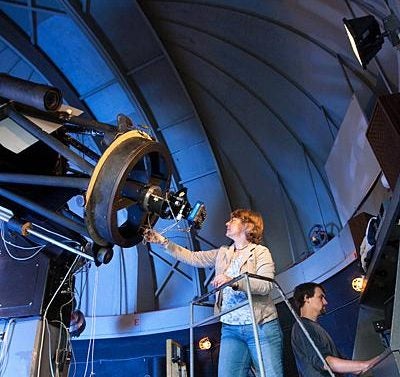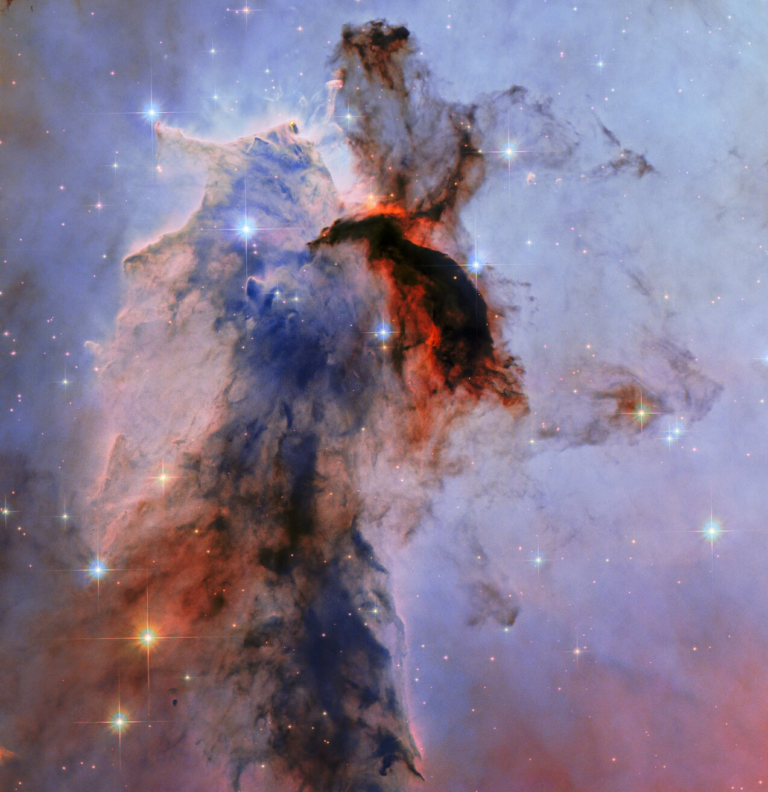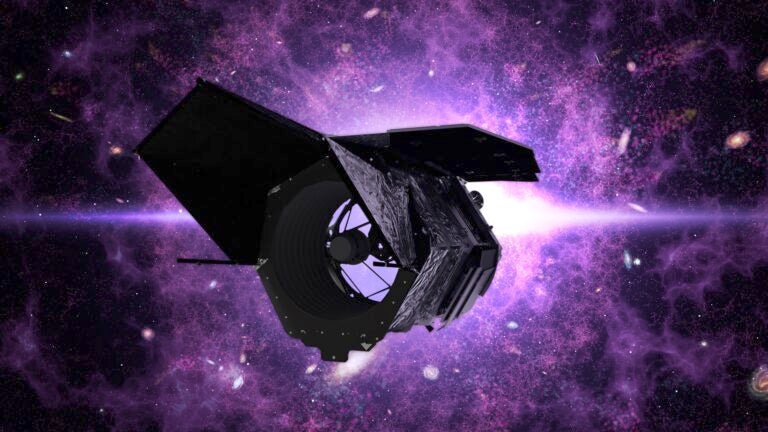
If you’ve ever contemplated dedicating your life to understanding the universe, there’s good news: The academic field of astronomy is as expansive as the cosmos itself, presenting myriad options for specialization.
So, let’s walk through some of the most sought-after astronomy degrees for those whose heads are perpetually in the stars.
What is Astronomy?
At its core, astronomy is the scientific study of celestial objects — like stars, planets, and galaxies — and phenomena that originate beyond Earth’s atmosphere. It’s a quest to understand how these objects came to be, how they work, and how they impact our existence.
Astronomy is about the mysteries that have both confounded and fascinated humanity for millennia. It’s the science of asking, “What is out there in the great unknown?” and having the audacity to seek out the answer.

Different types of astronomy degrees
Most colleges and universities may only offer generalized degrees in astronomy or astrophysics. But almost any reputable institution will provide students of astronomy with an array of options when it comes to custom tailoring their courses to their specific astronomy interests.
Astronomy courses can cover disciplines ranging from physics to chemistry to computer science and more, and exactly which courses you choose typically depends on your desired area of astronomical focus.
Observational Astrophysics
Students pursuing this area of astronomy may spend a good deal of time learning about and operating powerful professional telescopes, gathering valuable data from the skies. Observational astronomers aim to understand celestial objects like stars, galaxies, and black holes through sophisticated data capture and analysis, and modern observatories are their primary tools.
Theoretical Astrophysics
While observational astrophysicists capture data to help understand the universe, theoretical astrophysicists use mathematical models and simulations to unravel the processes behind cosmic phenomena. An astronomy degree focused on theoretical astrophysics dives deep into the abstract to get at the heart of what makes the universe tick.
Cosmology
Rather than focusing on individual celestial objects, cosmology seeks to grasp the universe as a whole. Aspiring cosmologists will grapple with complicated topics such as the Big Bang, inflation, dark matter, dark energy, and the ultimate fate of the universe. Cosmology is a journey back in time and into the future, exploring the universe’s origin and destiny.
Planetary Science
Planetary scientists concentrate their focus on the diverse bodies within our solar system and beyond. From the volcanoes of Mars to the rings of Saturn, from Earth-like exoplanets to surprisingly complex dwarf planets, planetary scientists probe the mysteries of planetary formation, evolution, and even potential habitability.
Stellar Astrophysics
Stellar astrophysicists narrow their gaze to stars. Students delving into this specialization will study the life cycles of stars, from their fiery births in nebulas to their often-dramatic deaths. Topics like supernovae, neutron stars, and the Sun’s evolution are all part of the curriculum for a stellar astrophysicist.
Astrobiology
Is there life beyond Earth? This tantalizing question is at the heart of astrobiology. This interdisciplinary field combines astronomy with biology, along with a healthy dose of chemistry and geology. As well as gaining a firm understanding on the requirements for life as we know it, students will study extreme Earth environments as analogs for other worlds, helping shed light on the possibilities of life existing elsewhere in the cosmos.
Other specializations
The universe is vast and so, too, is the field of astronomy. Beyond the specializations outlined above, there are many other options for those interested in unraveling the mysteries of space, including:
- Space Physics: Focus on the physical properties and behaviors of interplanetary space.
- Galactic Astronomy: Dive into the structure and dynamics of our galaxy, the Milky Way, and the many other galaxies beyond.
- Radio Astronomy: Use radio waves to study distant stars, galaxies, and exotic objects like black holes, track near-Earth objects (NEOs), and more.
- Instrumentation: Study the creation and development of advanced tools and instruments that aid astronomers in answering their cosmic queries.
Skills Beyond the Stars
An astronomy degree is more than a ticket to understanding the stars. It equips students with a robust skill set that’s invaluable across many professions. Astronomers decipher complex puzzles, master reasoning and analytical skills, and develop toolkits designed specifically for problem-solving. Many astronomy students also gain experience with computer programming, which often makes them highly sought-after in sectors ranging from finance to data science.
Whether you dream of unearthing exoplanets, theorizing about the fabric of the universe, or diving into the intricacies of black holes, there’s an astronomy degree that’s right for you. And remember, pursuing an astronomy degree is not just choosing a profession, it’s choosing a passion.









